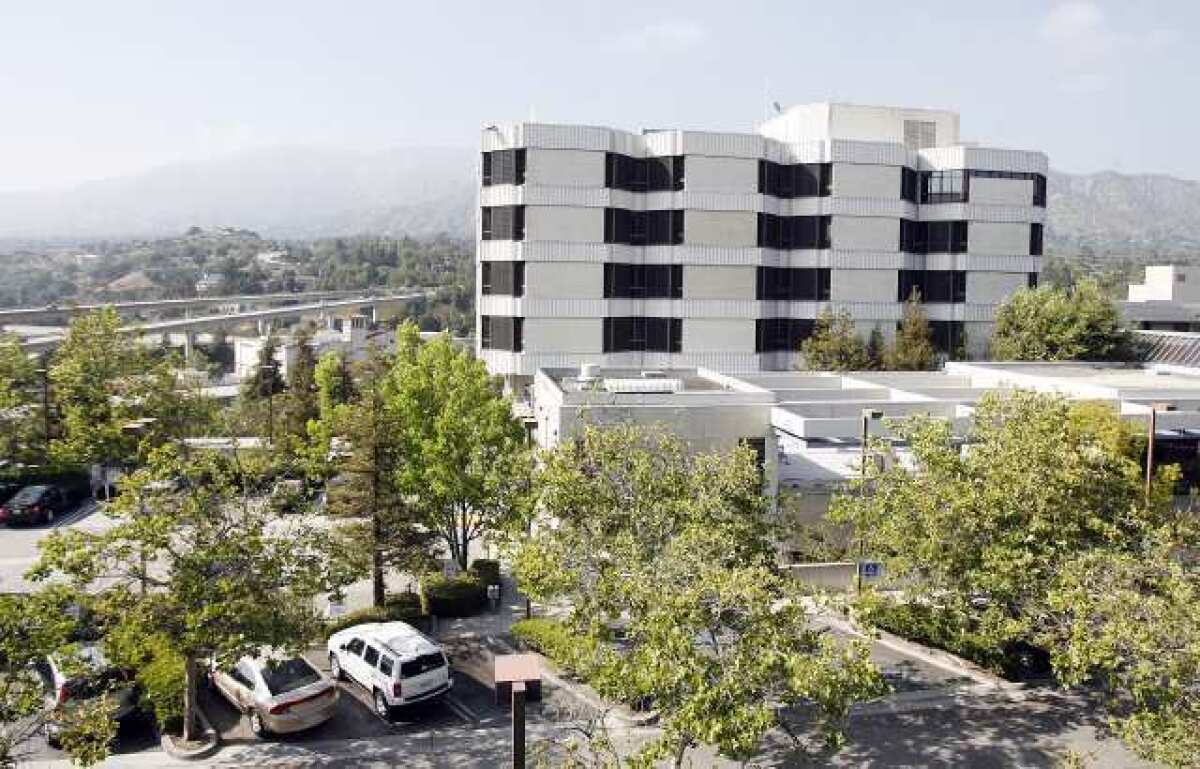Verdugo Hills Hospital to merge with USC medical center

Verdugo Hills Hospital, for the last 40 years an independent hospital, has entered into merger talks with USC’s Keck Medical Center, officials said Tuesday.
Members of the Verdugo Hills board of directors voted at a June meeting to partner with USC, according to hospital spokeswoman Celine Petrossian. Verdugo Hills, on the border of Glendale and La Cañada Flintridge, hopes to complete the merger by the end of year.
Keck spokeswoman Alison Trinidad confirmed that merger talks are in progress.
Glendale Adventist Medical Center, which in March made public its desire to partner with Verdugo Hills, released a statement Tuesday arguing that it would have been the better merger partner, in part because several doctors work at both hospitals.
‘“We are very disappointed in this decision,” Kevin Roberts, president and chief executive of Glendale Adventist said in the statement. “We have a deep knowledge of local healthcare needs and a long history providing high-quality healthcare to the residents of Glendale and the Foothill communities.”
Verdugo Hills is a 158-bed facility serving people from Tujunga to La Cañada. It employs more than 750 people and has long-standing ties to local charities.
When Verdugo Hills revealed in March that it was considering a merger or being acquired by a larger entity, it cited changes in healthcare economics, including reforms in President Obama’s Affordable Care Act, as one of the drivers. Medicare reimbursements are not expected to grow in the coming years, putting the squeeze on smaller facilities.
Gerald Kominski, a professor of public health and management, and director of the UCLA Center for Health Policy Research, said hospitals of Verdugo Hills’ size recently have looked to mergers with larger groups as demand for hospital inpatient services has declined.
“[Verdugo Hills] is a relatively small hospital. And smaller hospitals in general, because there’s declining demand, are looking for strategic affiliation or joining part of a chain of hospitals as a survival strategy,” Kominski said.
Kominski said new technology has allowed larger hospitals to move procedures to surgical centers and release patients more quickly. Cataract surgeries, for example, used to require a two- to three-day stay in a hospital, but can now be performed as an outpatient procedure, he said.
Kominski said that a merger would likely benefit both parties, with Verdugo Hills taking advantage of USC’s bulk purchasing power and administrative and IT networks, while USC’s Keck Medical Center could shift some routine procedures up to Verdugo Hills.
In March Michael Klein, an internist at Verdugo Hills, said he worried that a merger could have a negative impact on the community, with a shift in services undermining doctors’ private practices and forcing residents to travel farther for care.
On Tuesday Klein said he hopes that Verdugo Hills’ negotiators ensure that USC invests in Verdugo Hills.
“If they’re going to go through with this, our thing for the doctors is, let’s get a contract attorney and get a really good deal,” he said. “Let’s sign a long-term agreement, so that’s it’s good for all of us, good for the hospital, good the patients and good for the doctors.”